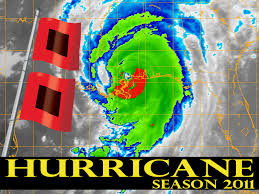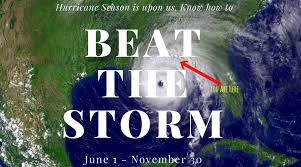
Homeowners that live near coastlines face possible loss by a hurricane. Hopefully, any affected person will own a homeowners insurance policy to help deal with the crisis. However, they must be aware of their responsibilities under the insurance policy in order to take full advantage of any available coverage.
The main priority for a homeowner is to be sure that the amount of coverage is adequate in the event that the home has to be totally replaced. Also, the homeowner should keep their deductible in mind, seeking options to make sure that it is affordable. Insurers who operate in areas that experience hurricanes typically require deductibles at a high, flat amount (such as $2,000) or at a percentage of the policy’s insurance limit (anywhere from 2% to 5%).

Naturally, a homeowner should consider ways to minimize their possible loss and maximize their personal safety by:
- Making advance evacuation plans (including determining evacuation route, fueling car, preparing supplies, etc.)
- Being aware of the nearest, safe shelter
- Bring outdoor property inside the home (lawn equipment, toys, tools, etc.)
- Installing or building a proper “safe room”
- Cover/Secure all windows and doors
- Have a portable radio and stay turned to accurate source of weather broadcasts.
- Turn off (unplug) small appliances and turn refrigerators/freezers to their highest settings.
- If applicable, turn off fuel/oil tanks.
- Fill sinks and bathtubs with water.
Returning to a damaged/destroyed site is not when a hurricane victim will be at his or her best, but that is the time that certain obligations have to be met in order to make the most out of any insurance recovery. It is important to do the following:
- At the earliest possible chance, contact your insurer with details about your loss
- If possible, be sure you have a way to visually record the loss details (camera, digital camera, even a smartphone camera.)
- Take reasonable action to keep intact property protected from additional damage or loss
- Keep an accurate record of all expenses that are related to protecting your property as well as items related to temporary housing and meals
Though post-catastrophe times are chaotic and spirit-sapping, it is important to keep in contact with your agent and/or insurer. Take the time to be meticulous about filling out reports, documenting the value of your loss and cooperating with claims personnel.
COPYRIGHT: Insurance Publishing Plus, Inc. 2016
All rights reserved. Production or distribution, whether in whole or in part, in any form of media or language; and no matter what country, state or territory, is expressly forbidden without written consent of Insurance Publishing Plus, Inc.

 Contact
Contact
 Email an Agent
Email an Agent

 Click to Call
Click to Call Get Directions
Get Directions


